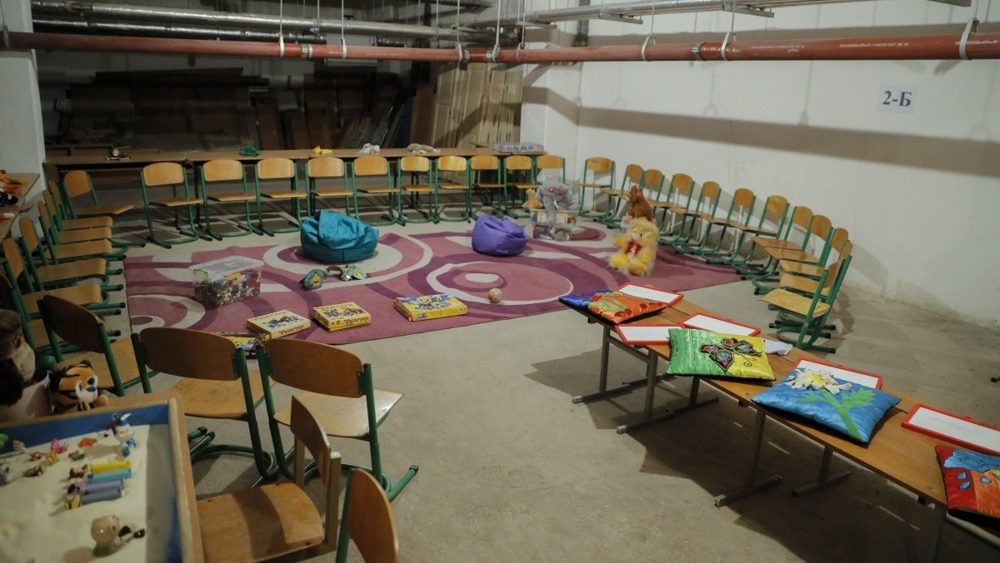This post is also available in: Bosnian

The evidence gathering process for these crimes is extensive and complex, as Russia continues to occupy Ukrainian territories, and monitoring the humanitarian consequences represents a challenge for investigators and the judicial system.
After the Russian invasion, Ukraine faced a number of illegal deportations, while Russian forces summarily took children from all lines of conflict, namely from the northern border with Belarus, from the eastern regions, and most of all from the southern region of Kherson, most of which is occupied.
When the Ukrainian Armed Forces took back part of the Kherson region in the fall of 2022, investigators and police officers got a clear picture of the consequences of child abductions as hundreds of schoolchildren and teenagers had been taken to so-called holiday camps in Russia and the occupied Crimea. According to Ukrainian police officials, more than 1,500 children were separated from their parents, as they had not been brought back home from the camps in the south.
Their relatives turned to the police, which issued search notices for those children.
Olha Poedynok, a doctor of law, lawyer and associate professor of international law at the Institute of International Relations of Kyiv National University ‘Taras Shevchenko’, says that international humanitarian law considers children to be civilians and the most vulnerable group, for which reason they are provided with general and special protection, and their deportation is strictly prohibited.
“Children are the future of any community, and if a child is taken away from the community, it kills the child’s future. Therefore, sometimes deportation can be seen as a tool aimed at destroying an entire community,” says Poedynok.
Interviewing minors is a way of documenting these crimes that requires special knowledge and skills from investigators. The legal nature and sensitivity of this process, on the one hand, requires the presence of legal representatives, who usually have the authority and trust of the child, and on the other hand, can prevent establishing contacts and obtaining a truthful testimony. Each case of unlawful deportation has unique circumstances for which investigators must, inter alia, correctly determine the presence or absence of an object of the crime.
In the occupied territories, the authorities are introducing a stable administrative control, which primarily covers the social and educational spheres, so Russians use propaganda narratives to intimidate and mentally oppress Ukrainians, making criminals of them.
According to the Ukrainian Prosecutor General’s Office, since the beginning of Russia’s invasion, coercion caused by fear of violence has been mostly used within occupied educational institutions, forcing parents and children to go to Russia and live there.
Ukrainian authorities cannot provide accurate statistics on child abductions because it is still difficult to identify the circumstances of missing persons and qualify cases as deportations.
However, we are talking of a number of cases, including abductions of children without parental care, and one such example is the removal of 50 children under the age of five from an orphanage in occupied Kherson in 2022.
Documenting the facts of crimes against minors without parents is also complicated by data protection regulations. Every child who ended up in a state institution had certain difficulties with family, health and legal status. In addition, Russians have repeatedly stated that such removals are an act of “evacuation” due to a threat to the safety of children and provision of necessary medical care.
“In accordance with international legal standards, one of our challenges was to document the confirmation or denial of the actual military threat and the need to evacuate children for security reasons. We found evidence that Russians had no legal basis to take the children away,” said Yanina Tertychna, head of the Department for Child Protection and Fight against Violence at the Prosecutor General’s Office of Ukraine.
After the return of deportees from the occupied territory or Russia, Ukrainian legal and social protection institutions face a number of challenges, namely the psychological and financial adaptation of the affected families and the correct qualification of war crimes.
The International Criminal Tribunal for the former Yugoslavia concluded that deportation did not constitute a permanent basis for displacement. This means that the violation of expulsion deadlines does not make the initial act of displacement legal and should not be interpreted as a basis for precluding the criminal liability of the perpetrator.
Since the start of Russia’s invasion of Ukraine, tens of thousands of children have been injured and more than 580 have died.


